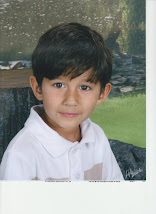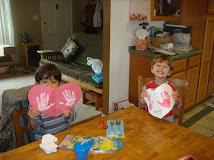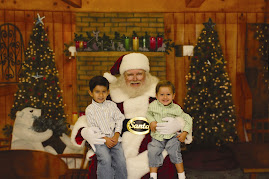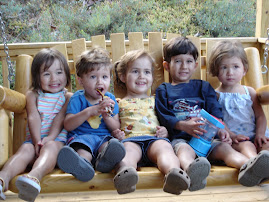List of books where people with disabilities are shown in a positive light
There are characters who have autism, down syndrome, intellectual disabilities, visual impairments, hearing impairments, speech delays, dyslexia, spina bifida, synesthesia and who use a wheelchair. The list was created using the winners of the Dolly Gray Award and the Schneider Family Book Award and lists compiled by Sandy Lahmann, Cherl Pesto at Disaboom and Mary Anne Prater & Tina Taylor Dyches from Teaching Exceptional Children.
* Very Special Critter, Mercer Mayer–Little Critter discovers that the new boy in class is really not so different from anyone else, even though he is in a wheelchair.
* My Friend Isabelle, Eliza Woloson–A young boy the activities he shares with his friend Isabelle, a girl with Down Syndrome.
* Susan Laughs, Jeanne Willis /Tony Ross–Rhyming couplets describe a wide range of common emotions and activities experienced by a girl who uses a wheelchair.
* Harry and Willy and Carrothead, Judith Casely–Three boys overcome prejudicial ideas about appearances and become friends.
* Hooway for Wodney Wat, Helen Lester /Lynn Munsinger–Classmates make fun of Rodney because he can’t pronounce his name, but it is Rodney’s speech impediment that drives away the class bully.
* Dad and Me in the Morning, Patricia Lakin–A deaf boy and his father share a special time as they watch the sun rise at the beach.
* Best Friend on Wheels, Debra Shirley–The narrator meets Sarah, a girl in a wheelchair, and they become fast friends.
* Kami and the Yaks, Andrea Stenn Stryer–Kami, a young Sherpa boy who is deaf, rescues his family?s yaks and livelihood during a violent storm.
* The Deaf Musicians, Pete Seeger /Paul Dubois Jacobs–After losing his hearing, jazzman Lee learns to make music in a new way.
* Looking out for Sarah, Glenna Lang–Describes a day in the life of a seeing eye dog, from going with his owner to the grocery store and post office, to visiting a class of school children, and playing ball
* Piano Starts Here: The Young Art Tatum, Robert A. Parker–Tatum came from modest beginnings and was nearly blind, his passion for the piano and his acute memory for any sound drove him to become a virtuoso who was revered by both classical and jazz pianists.
* Alphabet War, Diane Burton Robb–Learning to read is a great struggle for Adam, but with expert help, hard work, and belief in himself, he wins “The Alphabet War.
* See the Ocean, Estelle Condra–Driving through mountain fog to the beach, two young brothers compete to see who will first see the ocean, but it is their blind sister Nellie who senses it first.
* Knots on a Counting Rope by Bill Martin Jr./John Archambault–A grandfather and his blind grandson reminisce about the young boy’s birth, his first horse, and an exciting horse race.
* Thank You, Mr. Falker, Patricia Polacco–Trisha could paint and draw beautifully, but when she looked at words on a page, all she could see was jumble. It took a very special teacher to recognize little Trisha’s dyslexia.
* Mama Zooms, Jane Cowen-Fletcher–A boy’s wonderful mama takes him zooming everywhere with her, because her wheelchair is a zooming machine.
* My Pal, Victor / Mi amigo V?or by Diane Gonzales Bertrand –Two boys enjoy the summer doing all of the things that boys do despite one boy’sdisability.
* Two Tracks in the Snow, Louella Bryant–Ari, a boy who uses a wheelchair, uses his monoski to teach Will how to snowboard.
* Silent Lotus, Jeanne M. Lee–Although she cannot speak or hear, Lotus trains as a Khmer court dancer and becomes eloquent in dancing out the legends of the gods.
* Crow Boy, Taro Yashima–A lonely boy in a village school in Japan learned all the calls of the crows as he left his home at dawn and arrived home at sunset on school day.
* Ian’s Walk, Laurie Lear–A young girl realizes how much she cares for her autistic brother Ian when he gets lost at the park.
* Featherless (Desplumado), Juan Felipe Herrera–Although Tomasito’s spina bifida keeps him in a wheelchair, where he often feels as confined as his flightless and featherless pet bird, he discovers that he can feel free when he is on the soccer field.
* Keeping Up with Roo, Dan Andresen/Sharlee Glenn –Gracie has always had a special bond with her Aunt Roo, who is mentally disabled, but that relationship starts to change when Gracie beginsschool.
* Dad, Jackie, and Me, Myron Uhlberg-A young boy shares the excitement of Jackie Robinson’s rookie season with his deaf father.
Click HERE for the link to the original article




















.jpg)














No comments:
Post a Comment